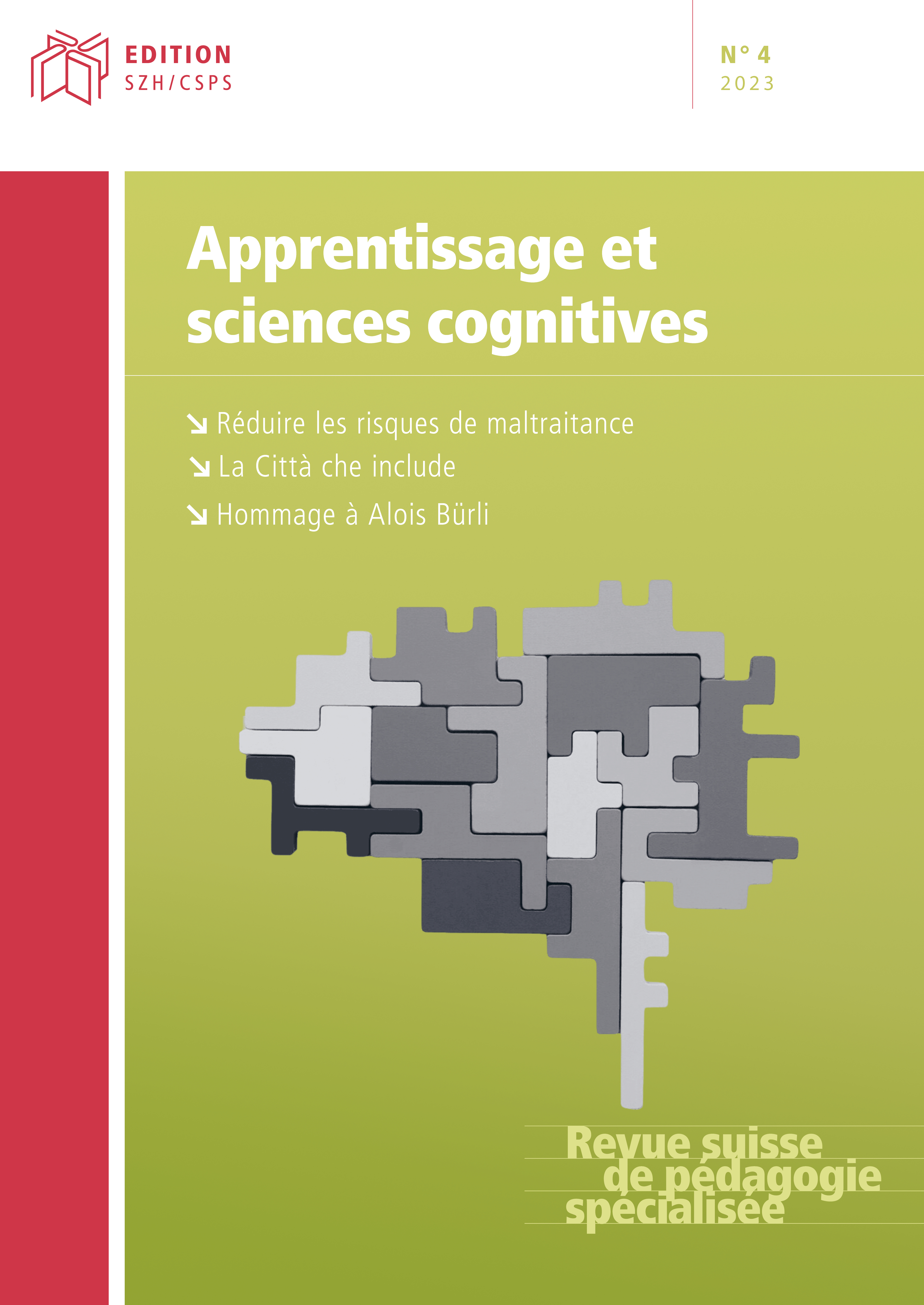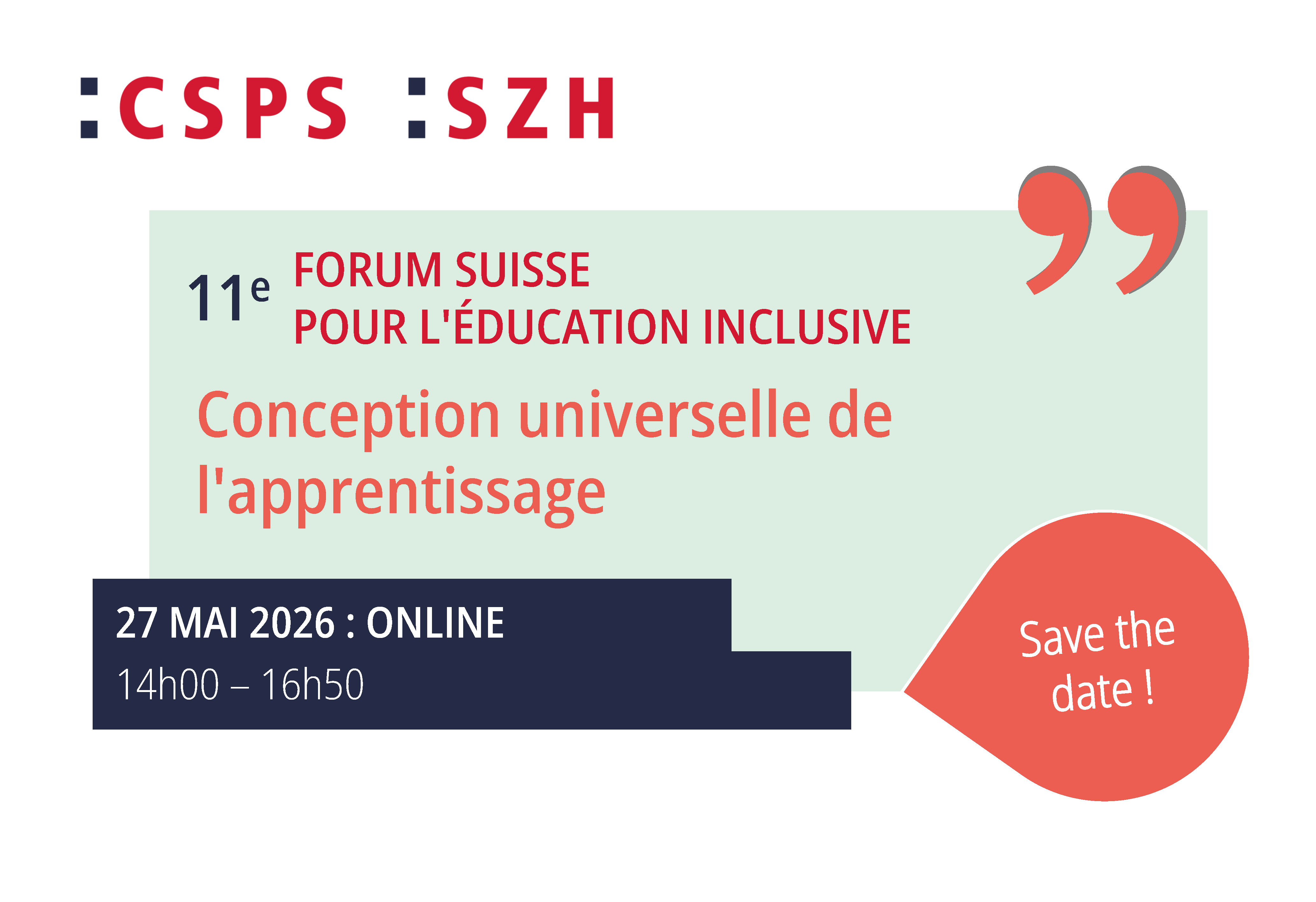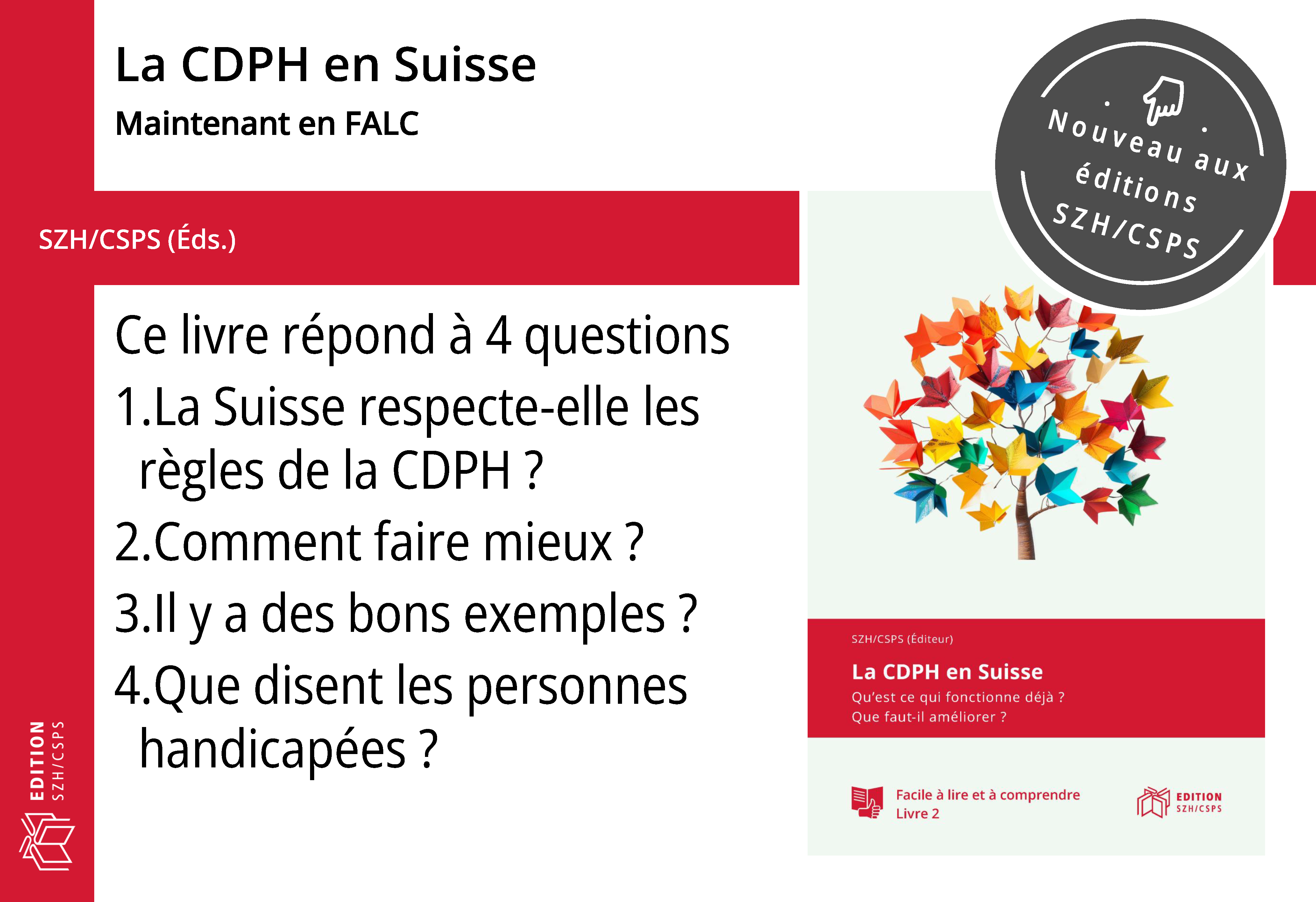Développer les compétences émotionnelles des élèves pour favoriser une école inclusive
DOI :
https://doi.org/10.57161/r2023-04-02Mots-clés :
besoins éducatifs particuliers, développement socioémotionnel, émotion, inclusion, réussite scolaireRésumé
Les sciences cognitives appliquées à l’éducation contribuent à identifier les trajectoires développementales des élèves avec ou sans besoins éducatifs particuliers afin que les modalités d’apprentissage et d’enseignement leur soient davantage adaptées. Parmi les compétences transversales participant à la réussite académique et à l’inclusion, les compétences émotionnelles constituent une base essentielle, aujourd’hui reconnue comme prédicteur du bienêtre et de la réussite scolaire des élèves. Cet article vise à définir le concept d’intelligence émotionnelle, à présenter comment son effet à l’école et sur les élèves est significatif, et proposer des repères pour favoriser les compétences émotionnelles en contexte scolaire.
Références
Bodrova, E., & Leong, D. J. (2006). Tools of the mind. Pearson Australia Pty Limited.
Boekaerts, M., & Pekrun, R. (2015). Emotions and Emotion regulation in Academic Settings. In L. Corno & E. M. Anderman (Eds), Handbook of educational psychology (3rd ed., pp. 90-104). Routledge.
Cavadini, T., Richard, S., Dalla-Libera, N., & Gentaz, E. (2021). Emotion knowledge, social behaviour and locomotor activity predict the mathematic performance in 706 preschool children. Scientific Reports, 11(1), Article 14399. https://doi.org/10.1038/s41598-021-93706-7
Chennaz, L., Valente, D., Baltenneck, N., Baudouin, J.-Y., & Gentaz, E. (2022). Emotion regulation in blind and visually impaired children aged 3 to 12 years assessed by a parental questionnaire. Acta Psychologica, 225, Article 103553. https://doi.org/10.1016/j.actpsy.2022.103553
Durlak, J. A., & DuPre, E. P. (2008). Implementation matters: A review of research on the influence of implementation on program outcomes and the factors affecting implementation. American journal of community psychology, 41, 327-350. https://doi.org/10.1007/s10464-008-9165-0
Dyck, M. J., Farrugia, C., Shochet, I. M., & Holmes‐Brown, M. (2004). Emotion recognition/understanding ability in hearing or vision‐impaired children: do sounds, sights, or words make the difference? Journal of Child Psychology and Psychiatry, 45(4), 789-800. https://doi.org/10.1111/j.1469-7610.2004.00272.x
England-Mason, G. (2020). Emotion regulation as a transdiagnostic feature in children with neurodevelopmental disorders. Current Developmental Disorders Reports, 7, 130-138. https://doi.org/10.1007/s40474-020-00200-2
Ersay, E. (2007). Preschool teachers' emotional experience traits, awareness of their own emotions and their emotional socialization practices. The Pennsylvania State University.
Gentaz, E. (2022). Les neurosciences à l’école : leur véritable apport. Odile Jacob.
Gentaz, E. (2023). Comment les émotions viennent aux enfants. Et pourquoi les compétences émotionnelles sont la clé de leur épanouissement et de leur réussite scolaire. Nathan.
Goleman, D. (1995). Emotional intelligence: Why it can matter more than IQ for character health and lifelong achievement. Bantam Books.
Hintermair, M. (2007). Prevalence of socioemotional problems in deaf and hard of hearing children in Germany. American annals of the Deaf, 152(3), 320-330. https://doi.org/10.1353/aad.2007.0028
Izard, C., Fine, S., Schultz, D., Mostow, A., Ackerman, B., & Youngstrom, E. (2001). Emotion knowledge as a predictor of social behavior and academic competence in children at risk. Psychological science, 12(1), 18-23. https://doi.org/10.1111/1467-9280.00304
Jennings, P. A., & Greenberg, M. T. (2009). The prosocial classroom: Teacher social and emotional competence in relation to student and classroom outcomes. Review of educational research, 79(1), 491-525. https://doi.org/10.3102/003465430832569
Joseph, D. L., & Newman, D. A. (2010). Emotional intelligence: an integrative meta-analysis and cascading model. Journal of applied psychology, 95(1), 54. https://doi.org/10.1037/a0017286
Kelly, A. C., Scheres, A., Sonuga-Barke, E. S., & Castellanos, F. X. (2007). Functional Neuroimaging of Reward and Motivational Pathways in ADHD. Handbook of Attention Deficit Hyperactivity Disorder, 209. https://www.researchgate.net/publication/237119282_11_Functional_Neuroimaging_of_Reward_and_Motivational_Pathways_in_ADHD
Kotsou, I., Farnier, J., Shankland, R., Mikolajczak, M., & Leys, C. (2022). Développer les compétences émotionnelles. En 8 séances. Dunod.
Lafay, A., Berger, C., Alaria, L., Angonin, S., Dalla-Libera, N., Richard, S., Cavadini, T., Gentaz, E. (2023). Impact of Innovative Emotion Training in Preschool and Kindergarten Children Aged from 3 to 6 Years. Children, 10(11), 1825. https://doi.org/10.3390/children10111825
Losh, M., & Capps, L. (2006). Understanding of emotional experience in autism: insights from the personal accounts of high-functioning children with autism. Developmental psychology, 42(5), 809-818. https://doi.org/10.1037/0012-1649.42.5.809
MacCann, C., Jiang, Y., Brown, L. E., Double, K. S., Bucich, M., & Minbashian, A. (2020). Emotional intelligence predicts academic performance: A meta-analysis. Psychological bulletin, 146(2), 150-186. https://doi.org/10.1037/bul0000219
Malsert, J., Benoit, V., Blatti, S., Pernet, M., & Skrivan Von Fellenberg, A. (2023, 26-27 juin). Entrainer les compétences émotionnelles à l’école pour favoriser le bienêtre scolaire [Conférence]. Colloque International PIAGET-RIPSYDEVE 2023 – Psychologie du Développement et de l’Éducation : Enjeux actuels et défis pour le XXIème siècle., Université de Genève, Suisse.
Martins, A., Ramalho, N., & Morin, E. (2010). A comprehensive meta-analysis of the relationship between emotional intelligence and health. Personality and individual differences, 49(6), 554-564. https://doi.org/10.1016/j.paid.2010.05.029
Mayer, J. D., & Salovey, P. (1997). What is emotional intelligence? In P. Salovey & D. Sluyte (Eds.), Emotional development and emotional intelligence: implications for educators (pp. 3-31). Basic Books.
Mazefsky, C. A., Herrington, J., Siegel, M., Scarpa, A., Maddox, B. B., Scahill, L., & White, S. W. (2013). The role of emotion regulation in autism spectrum disorder. Journal of the American Academy of Child & Adolescent Psychiatry, 52(7), 679-688. https://doi.org/10.1016/j.paid.2010.05.029
Mill, D., & Romano-White, D. (1999). Correlates of affectionate and angry behavior in child care educators of preschool-aged children. Early Childhood Research Quarterly, 14(2), 155-178. https://doi.org/10.1016/S0885-2006(99)00007-1
Rey, G., Magnus Smith, M., Zaharia, A., Samson, A. C., Gentaz, E., Piguet, C., Sander, D., & Mella, N. (2023, 26-27 juin). Développer les compétences socioémotionnelles des adolescents en classe : effets communs et différentiels de la pratique de l’improvisation théâtrale et de la pleine conscience [Conférence]. Colloque International PIAGET-RIPSYDEVE 2023 – Psychologie du Développement et de l’Éducation : Enjeux actuels et défis pour le XXIème siècle, Université de Genève, Suisse.
Richard, S., Clerc-Georgy, A., & Gentaz, E. (2023). Pretend play-based training improves some socio-emotional competences in 5-6-year-old children: A large-scale study assessing implementation. Acta Psychologica, 238, 103961. https://doi.org/10.1016/j.actpsy.2023.103961
Richard, S., Gay, P., & Gentaz, E. (2021). Pourquoi et comment soutenir le développement des compétences émotionnelles chez les élèves âgés de 4 à 7 ans et chez leur enseignant.e ? Apports des sciences cognitives. Raisons educatives, 25(1), 261-287. https://doi.org/10.3917/raised.025.0261
Rubia, K. (2011). “Cool” inferior frontostriatal dysfunction in attention-deficit/hyperactivity disorder versus “hot” ventromedial orbitofrontal-limbic dysfunction in conduct disorder: a review. Biological psychiatry, 69(12), e69-e87. https://doi.org/10.1016/j.biopsych.2010.09.023
Rubia, K. (2011). “Cool” inferior frontostriatal dysfunction in attention-deficit/hyperactivity disorder versus “hot” ventromedial orbitofrontal-limbic dysfunction in conduct disorder: a review. Biological psychiatry, 69(12), e69-e87. https://doi.org/10.1016/j.biopsych.2010.09.023
Salovey, P., & Mayer, J. D. (1990). Emotional Intelligence. Imagination, Cognition and Personality, 9(3), 185–211. https://doi.org/10.2190/DUGG-P24E-52WK-6CDG
Samson, A. C., Huber, O., & Gross, J. J. (2012). Emotion regulation in Asperger's syndrome and high-functioning autism. Emotion, 12(4), 659-665. https://doi.org/10.1037/a0027975
Tisseron, S. (2012). Prévenir la violence en développant l’empathie – Le Jeu des Trois Figures en classe maternelle. Diversité, 170, 86-91. https://www.persee.fr/doc/diver_1769-8502_2012_num_170_1_3640
Vermeulen, P. (2020). Autisme et émotions. De Boeck Supérieur.
Wiefferink, C. H., Rieffe, C., Ketelaar, L., De Raeve, L., & Frijns, J. H. (2013). Emotion understanding in deaf children with a cochlear implant. Journal of deaf studies and deaf education, 18(2), 175-186. https://doi.org/10.1093/deafed/ens042
Publiée
Comment citer
Numéro
Rubrique
Licence
© Jennifer Malsert, Edouard Gentaz 2023

Ce travail est disponible sous la licence Creative Commons Attribution 4.0 International .




